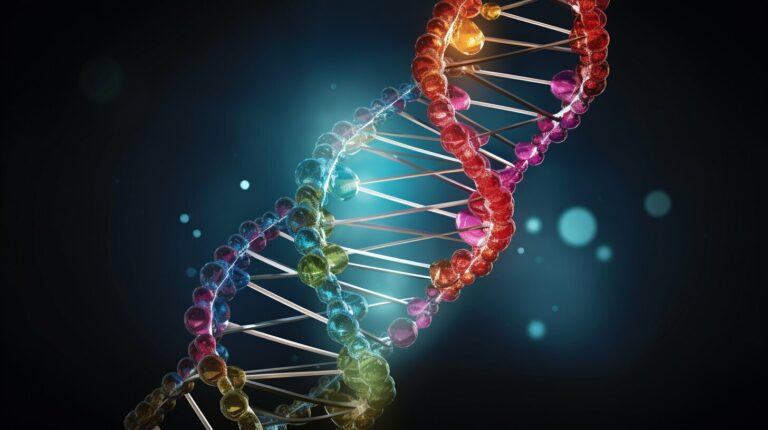Unveiling the Mystery: Why Are They Called Wisdom Teeth?
Wisdom teeth, also known as third molars, have fascinated people for centuries due to their intriguing name and symbolic significance. These teeth typically emerge during the late teenage years and early adulthood, a time when individuals are believed to gain more wisdom. The exact reason for the name remains uncertain, but cultural beliefs and traditions have influenced the naming of these teeth. Regardless of the reason behind the name, wisdom teeth serve a practical purpose in chewing and grinding food. However, they can also cause problems such as impaction, crowding, and infection, which often requires their removal.
Key Takeaways:
- Wisdom teeth, also known as third molars, emerge during the late teenage years and early adulthood.
- They are named “wisdom teeth” due to the association with gaining wisdom during this time.
- The exact reason for the name remains uncertain, but cultural beliefs and traditions have influenced it.
- Wisdom teeth serve a practical purpose in chewing and grinding food.
- However, they can also cause problems such as impaction, crowding, and infection, leading to their removal.
The Naming of Wisdom Teeth
The name “wisdom teeth” has sparked curiosity, as it points to a deeper symbolic meaning surrounding these late-developing teeth. Throughout history, cultures around the world have attributed significance to the emergence of these third molars, leading to various theories and explanations for their name.
One theory suggests that the name “wisdom teeth” stems from the belief that these teeth appear when individuals are entering adulthood, representing a time when they are gaining wisdom and maturity. This association between the development of wisdom teeth and the acquisition of wisdom has contributed to the name we use today.
Another possibility for the name’s origin lies in the cultural association of wisdom with older individuals who have a full set of teeth. Wisdom teeth typically erupt during the late teenage years and early twenties, a time when individuals are transitioning into adulthood. By linking the emergence of these teeth with wisdom, it may have been a way to honor this milestone in one’s life.
While the exact reason behind the name “wisdom teeth” remains uncertain, the historical context and cultural beliefs surrounding these late-developing molars have undoubtedly influenced their naming. Regardless of the symbolic meaning, wisdom teeth serve a practical purpose in the chewing and grinding of food. However, they can also present challenges such as impaction, crowding, and infection, often requiring their removal.
| Wisdom Teeth Naming Theories | Summary |
|---|---|
| Association with gaining wisdom and maturity during the transition into adulthood. | Wisdom teeth emerge during the late teenage years and early twenties, symbolizing a time of growth and maturity. |
| Linking wisdom with older individuals who have a full set of teeth. | Wisdom teeth are associated with attaining wisdom, as it is often associated with older individuals who have a complete set of teeth. |
In conclusion, the name “wisdom teeth” carries a deeper symbolic meaning that is rooted in cultural beliefs and traditions. While the exact origins of the name remain mysterious, the association between wisdom teeth and the acquisition of wisdom during the transition into adulthood is a prevalent belief. Whether seen as a symbol of personal growth or simply as molars with a practical purpose, wisdom teeth continue to intrigue and fascinate us.
Wisdom Teeth and Wisdom
The term “wisdom teeth” suggests a correlation between the development of these teeth and the acquisition of wisdom, leading to intriguing theories about their purpose. Wisdom teeth, also known as third molars, typically emerge during the late teenage years and early adulthood, a time when individuals are believed to gain more wisdom. This connection has sparked curiosity and speculation about the significance of the name.
While the exact reason for the name remains uncertain, cultural beliefs and traditions have influenced the naming of these teeth. Wisdom is often associated with older individuals who have a full set of teeth, symbolizing experience and knowledge. The emergence of these molars during the transition to adulthood may have been seen as a metaphorical representation of the maturation process and the attainment of wisdom.
From a practical standpoint, wisdom teeth serve a functional purpose in chewing and grinding food. In earlier times, when diets consisted of rougher and more fibrous foods, the extra chewing power provided by these additional molars was likely beneficial. However, with the evolution of our diets and advancements in dental health, wisdom teeth have become less necessary. In fact, they often cause problems such as impaction, crowding, and infection, which frequently necessitate their removal.
Despite the ongoing mystery surrounding the name “wisdom teeth,” their significance extends beyond symbolism. These molars have played a role in our evolutionary history and continue to impact our oral health today. As we uncover more about the origins and meaning behind their name, we gain a deeper understanding of the complexity and intricacies of the human body.
The Practical Purpose of Wisdom Teeth
Despite the symbolic associations, wisdom teeth serve a practical purpose in the oral cavity, contributing to the ability to break down and process food. These third molars, which typically emerge during the late teenage years and early adulthood, play a crucial role in the chewing and grinding of food.
Wisdom teeth are larger than other teeth, providing additional surface area for effectively breaking down tough and fibrous foods. This helps in the initial stages of digestion, as the food is properly crushed and mixed with saliva, creating a bolus that can be easily swallowed and further metabolized in the digestive system.
It is interesting to note that the presence of wisdom teeth in our ancestors’ diets, which were often more challenging and consisted of coarser foods, may have been beneficial. However, as our diets have evolved and become more refined, the need for these additional molars has diminished.
| Practical Purposes of Wisdom Teeth |
|---|
| Chewing and grinding tough foods |
| Aiding in the initial stages of digestion |
| Providing additional surface area for food breakdown |
Despite their practical purpose, wisdom teeth can often cause problems, leading to discomfort and the need for their removal. Their late eruption can result in impaction, where the teeth become trapped beneath the gums or do not fully emerge. This can lead to pain, swelling, and even infection. Additionally, the presence of wisdom teeth can cause overcrowding and misalignment of the other teeth, making orthodontic treatment necessary.
In conclusion, while the exact reason for the name “wisdom teeth” remains uncertain, cultural beliefs and traditions have played a significant role. Regardless of their name’s origins, these molars serve a practical purpose in the oral cavity, helping us efficiently break down and process food. However, the challenges they can present mean that their removal is often necessary for maintaining oral health and preventing further complications.
Challenges and Problems
While wisdom teeth can be beneficial, they can also pose significant challenges, often requiring surgical intervention for optimal oral health. The most common issue associated with wisdom teeth is impaction, which occurs when these molars do not have enough space to fully emerge or grow properly. This can lead to pain, swelling, and infection in the surrounding gum tissue.
Another challenge with wisdom teeth is crowding. When the jaw does not have enough room to accommodate these extra teeth, they can put pressure on the existing teeth, causing them to shift and become misaligned. This can lead to bite problems, difficulty in cleaning between the teeth, and an increased risk of tooth decay and gum disease.
Infection is also a concern with wisdom teeth. Because they are located at the back of the mouth, it can be difficult to clean them effectively, making them more susceptible to bacterial buildup and infection. Inflammation and infection can result in pain, swelling, and difficulty in opening the mouth.
| Common challenges associated with wisdom teeth: |
|---|
| Impaction |
| Crowding |
| Infection |
If these challenges arise, wisdom teeth removal may be necessary. This is a common procedure performed by oral surgeons or dentists. The extraction process involves making an incision in the gum tissue, removing any bone that may be blocking the tooth, and then extracting the tooth. In some cases, the tooth may need to be broken into smaller pieces for easier removal. The recovery period after wisdom teeth removal can vary, but typically involves some swelling, discomfort, and a soft diet for a few days.
It is important to consult with a dental professional to assess the condition of your wisdom teeth and determine the best course of action. Regular dental check-ups and X-rays can help monitor the development and alignment of these molars, allowing for early intervention if any challenges arise.
Conclusion
The name “wisdom teeth” continues to intrigue and fascinate, serving as a reminder of the rich history and cultural beliefs surrounding these enigmatic molars. These third molars are called “wisdom teeth” because they typically emerge during the late teenage years and early adulthood, a time when individuals are believed to gain more wisdom.
While the exact reason for the name remains uncertain, it is thought that wisdom teeth may have received their name due to the association between wisdom and older individuals who have a full set of teeth. Symbolically, the emergence of these teeth during this pivotal stage of life suggests a connection between physical development and the acquisition of wisdom.
Despite their name, wisdom teeth do serve a practical purpose in the process of chewing and grinding food. In our evolution, these teeth were necessary for our ancestors to consume a diet consisting of rougher and coarser foods. However, with the modernization of our diet, wisdom teeth have become less necessary, and they often pose challenges.
Issues such as impaction, crowding, and infection are common problems associated with wisdom teeth. As a result, many individuals require the removal of their wisdom teeth to maintain oral health and prevent complications. It is crucial to consult with a dental professional to assess the need for wisdom teeth removal and ensure optimal oral well-being.
FAQ
Why are wisdom teeth called wisdom teeth?
The exact reason for the name remains uncertain, but cultural beliefs and traditions have influenced the naming of these teeth. They are called wisdom teeth because they typically emerge during the late teenage years and early adulthood, a time when individuals are believed to gain more wisdom. The name may also have symbolic roots, as wisdom is often associated with older individuals who have a full set of teeth.
What is the practical purpose of wisdom teeth?
Wisdom teeth serve a practical purpose in chewing and grinding food. They are additional molars that help with the breakdown of food in the back of the mouth.
Do wisdom teeth cause any problems?
Yes, wisdom teeth can cause problems. Common issues associated with wisdom teeth include impaction, where they don’t fully emerge from the gums, crowding, where there isn’t enough space in the mouth for them to properly align, and infection. These problems often require the removal of wisdom teeth.
Why do we need to remove wisdom teeth?
Wisdom teeth are often removed to prevent or address problems such as impaction, crowding, and infection. If left untreated, these issues can lead to pain, inflammation, tooth decay, and damage to adjacent teeth.
When should wisdom teeth be removed?
The timing for wisdom teeth removal varies for each individual. In some cases, they may be removed before they fully emerge to prevent potential problems. In other cases, they may be removed when problems arise or are anticipated based on dental exams and imaging.
Is wisdom teeth removal painful?
Wisdom teeth removal is typically done under local anesthesia, so you won’t feel any pain during the procedure. However, some discomfort or swelling may occur after the surgery, which can be managed with prescribed pain medication and following post-operative care instructions.






